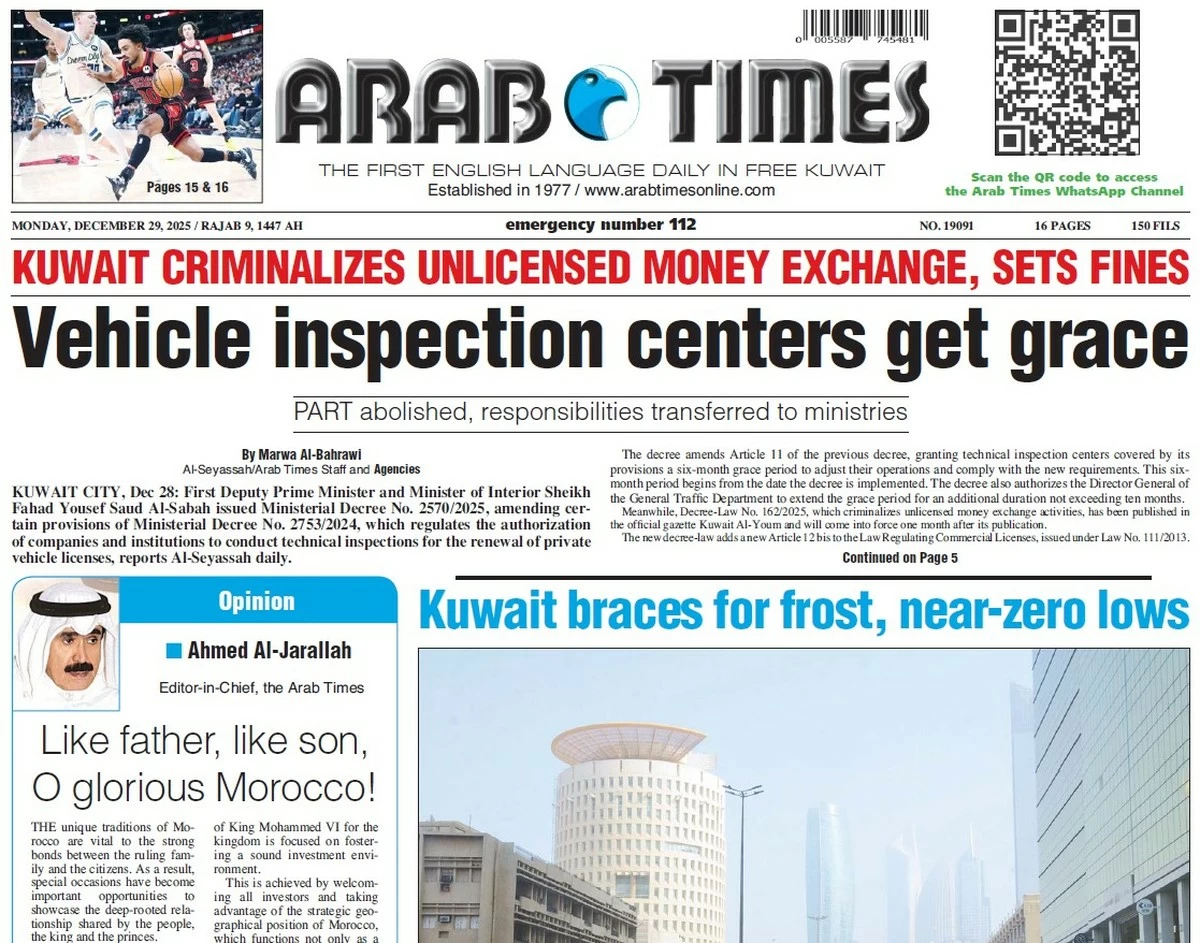25/08/2024
25/08/2024
ONE of the reasons for the country's under-performance and decline is the frequent turnover of ministers, sometimes occurring within just two months.
This instability in the ministerial position has led to concerns among ministers about their political fate, resulting in a lack of commitment among them to implement programs or proceed with development plans.
This has led citizens to criticize the government, as they see that ministers can only perform effectively if they receive directives either from parliamentarians who threaten them with interpellations or from influential individuals who helped them secure their positions. As a result, the burden falls on the people while ministers doors remain shut.
Today, Kuwaitis are struggling with the consequences of this heavy legacy. The country's lag in development and many other aspects compared to its Gulf neighbors is largely due to officials' inability to implement the delayed projects.
An example in this regard is the crisis of power outages during summer seasons, something that has been ongoing for about 55 years. We and many others have tried to address the issue and talked about its causes at length but our efforts were met with silence. It seems as though ministers are indifferent but the truth is that they are actually too afraid to take actions that might jeopardize their positions in the ministry.
Boldness is necessary for those in such positions, as they are assuming important responsibilities. If they discover any mistakes or come across sound advice, they should act decisively without hesitation.
This also applies to the prime ministers, some among whom have previously said, "This is not my job," out of fear of losing their positions. Such an attitude represents a major failure.
For years, we have been calling for the privatization of the electricity sector. We suggested that it be managed by national joint-stock companies that would be responsible for production and distribution, while the state retains oversight, amid an increasing annual financial deficit.
This also extends to most productive sectors and other aspects that burden the budget including fuel, food support, and various services that cost the state over KD 7 billion annually, equivalent to approximately 22 billion dollars.
If the government focused on increasing the salaries of the needy and pensions of the retirees, and discontinued certain subsidies, it would cost no more than KD 2 billion annually.
Implementing such a program would also make it easier for the government to introduce taxes based on citizens' abilities. It is not possible to continue with this kind of confusion in the administration, as it is still driven by conflicts of interest, influence, and the distribution of public funds. At one point, the situation resembled "Ali Baba's cave and one thousand thieves."
Kuwait has the potential to become a leading center for healthcare and education in the Middle East and overcome its current state of development stagnation.
To achieve this, Kuwait should consider granting land to prominent international medical and educational institutions to build hospitals and major universities, similar to the approaches taken by Qatar, the UAE, and Saudi Arabia. These countries have transformed into hubs of scientific, medical, and industrial excellence. In contrast, Kuwait's current approach often results in decisions that appear random and lack strategic direction.
When talking about development and the need for private sector's participation, as well as attracting Gulf and international investments to the country, we must consider what would make this easier, instead of the decisions issued by the Ministry of Commerce and Industry to prohibit granting licenses to Gulf companies with expatriate partners.
Clearly, the administration needs a revamp and an overhaul of the legal system. This can only be achieved through high-level directives. Kuwait must overcome the impasse imposed by the backward mindset that insists on isolating the country under the belief that "Kuwait is different," without clarifying what exactly makes it so.



